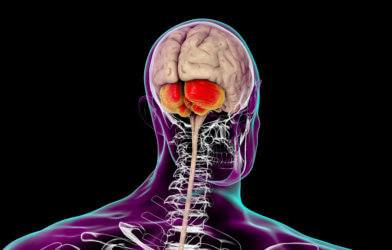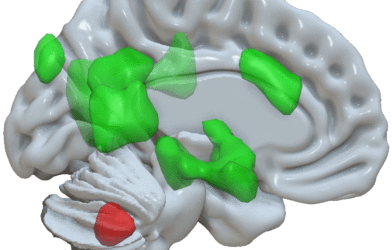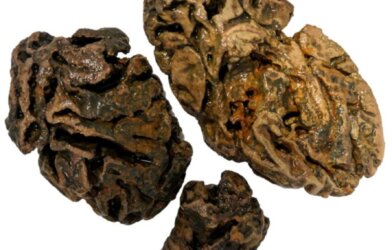Regulating pain in your body can be as easy as mind over matter. Researchers from the University of Wisconsin-Madison’s Center for Healthy Minds reveal mindfulness training isolates the changes in pain-related brain activity. It’s the first study to exhibit pain-related brain changes from a standardized mindfulness course that is offered in clinical settings.
Using the center’s eight-week Mindfulness Based Stress Reduction (MBSR) course, researchers were able to identify pathways in the brain specific to pain regulation on which activity is altered. However, changes weren’t seen in participants who took a similar course without the mindfulness instruction. Researchers say this is proof that brain changes are due to the mindfulness training itself.
For the study, participants had their brains scanned while receiving a controlled heat-based stimulus on their forearm to measure their neural pain response. Two brain-wide signatures of pain-related activity were recorded. Researchers say MBSR course participants showed a decrease in a signature associated with the sensory intensity of pain.
“Our finding supports the idea that for new practitioners, mindfulness training directly affects how sensory signals from the body are converted into a brain response,” says study author Joseph Wielgosz in a statement. Wielgosz led the work while he was a graduate student at University of Wisconsin-Madison and is now a postdoctoral researcher at Stanford University.
Wielgosz says common pain treatments like medications and invasive procedures have contributed to an epidemic of addiction to prescription and illicit drugs. One-third of Americans have pain-related issues.
MBSR courses have become popular with patients and has shown promise in clinical outcomes. Participants learn to respond to pain with less distress and more psychological flexibility by practicing nonjudgmental, “present-centered” awareness of mind and body.
Researchers also looked at longer-term mindfulness training and found that intensive meditation retreats were associated with changes in the neural signature for influences that shape pain directly.
“Just like an experienced athlete plays a sport differently than a first-timer, experienced mindfulness practitioners seem to use their mental ‘muscles’ differently in response to pain than first-time meditators,” explains Wielgosz.
Wielgosz says these findings show the potential for mindfulness practice as a lifestyle behavior. Additionally, the study helps pain researchers who have explored ways to biologically measure the effect of treatment.
“Looking at neural signatures together with patient experiences revealed insights about mindfulness that we could never have detected through either one alone,” notes Wielgosz.
Researchers believe their findings can provide a model for future research by helping to untangle the complexity of pain and reduce the burden it places on our lives.
The study is published in the American Journal of Psychiatry.







-392x250.jpg)



